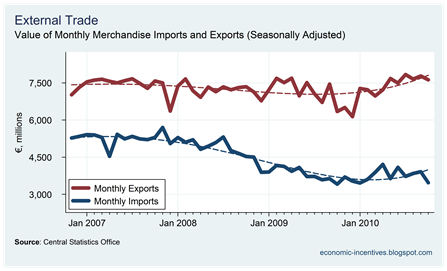Going Concern Principle in Accounting: Definition Example
Contents:


So, while the local days sales in inventorys are required to follow their legal requirements, they will have to make some adjustment to their fund structure for external financial reporting. In fund financial statements, governments should report governmental, proprietary, and fiduciary funds to the extent that they have activities that meet the criteria for using these funds. Working capital budget – Combines flexible and fixed budget elements in one document for enterprise and internal service funds. Current operations are flexibly budgeted based on the estimated level of services to be provided and long-range sources and uses of assets are controlled by annual/biennial appropriations and continuing appropriations. That could be done by comparing forecasts for recent previous periods and the current period with actual results. The most difficult aspect for auditors related to the COVID pandemic will likely be the evaluation of management’s plans.
Budgetary comparison schedules should be presented as required supplementary information for the general fund and for each major special revenue fund that has a legally adopted annual/biennial budget. The budgetary comparison schedule should present both the original and the final appropriated budgets for the reporting period ad well as actual inflows, outflows, and balances, stated on the government’s budgetary basis. In evaluating management’s assessment of going concern, the auditor shall cover the same period as that used by management and as required by the applicable financial reporting framework. An example follows of an explanatory paragraph in the auditor’s report describing an uncertainty about the entity’s ability to continue as a going concern for a reasonable period of time. When evaluating management’s plans, the auditor should identify those elements that are particularly significant to overcoming the adverse effects of the conditions and events and should plan and perform auditing procedures to obtain evidential matter about them. For example, the auditor should consider the adequacy of support regarding the ability to obtain additional financing or the planned disposal of assets.
The responsibilities of management and directors
Get more accurate and efficient results with the power of AI, cognitive computing, and machine learning. HighQ A business management tool for legal professionals that automates workflow. Simplify project management, increase profits, and improve client satisfaction.
The concept of going concern is relevant not only from an income statement perspective but also from a balance sheet perspective. All assets are depreciated and amortized as appropriate, with the same idea that the business will continue to operate. The Going Concern Concept is a FUNDAMENTAL principle in accounting that assumes a business will continue to operate for the foreseeable future. The auditing procedures performed and evidence obtained to evaluate the significant elements of management’s plans. There are no new reporting requirements and the update expands the current prescription. Proprietary fund revenues should be reported by major sources, and expenses should be classified in essentially the same manner as those of similar business organizations, functions, or activities.
Revenues do not include other financing sources (long-term debt, transfers, etc.). Questions were also raised about possible responsibilities of the auditing profession as a whole in the financial crisis and about whether the actual requirements regarding going concern assessment and reporting included in various financial reporting frameworks were indeed adequate. As discussed in Note X to the financial statements, the Company has suffered losses from operations as a result of the COVID-19 pandemic and has a net capital deficiency.
While the act did codify as law the reporting requirements of SAS 59, it also made it more difficult for a plaintiff’s attorneys to successfully pursue class-action litigation against auditors. Furthermore, in cases where auditors did fail to modify their audit opinions in accordance with SAS 59, the damage awards were limited to proportionate liability. When comparing the potential costs of issuing a going-concern opinion (hastening the demise of the client; losing audit fees) to the costs of not issuing a going-concern opinion , the result of the act was essentially to tip the scales in favor of not issuing a going-concern opinion.
Everything You Need To Master Financial Modeling
Shareholders FundShareholder Fund is the fund available to stakeholders after all liabilities have been met in the event of a company’s liquidation. This concept not only helps build a more systematic approach to the recording of financial information, but it also provides a reasonable understanding of the business, its growth, and long-term financial stability. Liquidation value, on the other hand, is relevant to a situation where the company becomes insolvent and is unable to pay its bills.
- Financial reporting under US GAAP assumes that a reporting entity will continue to operate as a going concern until its liquidation becomes imminent.
- Since the act was passed, high-profile litigation citing the auditors’ failure to issue a going-concern opinion, such as the class-action lawsuits by Kmart’s shareholders against PricewaterhouseCoopers, and Adelphia’s against Deloitte & Touche, has been drastically reduced.
- The Going Concern Concept is the assumption that an organization will continue to operate indefinitely and without needing to liquidate its assets and pay off creditors.
- Without the going concern principle, businesses would be forced to wind down operations and liquidate their assets immediately upon experiencing financial problems.
- New lenders will likely be reluctant to issue new credit, or any new credit issued will be prohibitively expensive.
The statements and reports listed above follownational standardsof financial reporting. They should not be confused withlegal reporting requirements, which are prescribed by the State Auditor’s Office for all local governments in Washington State. The legal requirements are consistent with these national standards, but they are not identical. Specific legal reporting requirements are contained in reporting part of this Manual. Proprietary fund statements of net position and revenues, expenses, and changes in fund net position should be presented using the economic resources measurement focus and the accrual basis of accounting. Operating budget – Presents the estimated expenditures and available resources necessary to provide the services for which the government was created.
Performance Audits
In addition to the trust criteria requirements above, all individual investment accounts are required to be reported in an Investment Trust Fund. Finding an appropriate fund type requires a careful analysis since there is not always a clear choice. For example, building permit fees may be accounted for in the general fund or a special revenue fund in certain circumstances, such as when they are partially supported by taxes. However, if there is a pricing policy to recover the cost of issuing those individual building permits, they should be reported in an enterprise fund. The determination of an activity’s principal revenue source is a matter of professional judgement.
The value of a going concern is basically the ability of the https://1investing.in/ to earn future profits. An analyst values the business after looking at the recent trend of the business and the company’s potential to earn profits. A going concern will be valued according to operational efficiency, market share, the ability to influence the market, technology advantages, and so on. It may be valued using the discounted cash flow method, with the assumption of future profitability. Effective for audits of financial statements for periods beginning on or after January 1, 1989, unless otherwise indicated. Object code 50 was removed and the definitions of object codes 30 and 40 adjusted to include the transactions which were previously reported using object 50.
ONCOCYTE CORP Management’s Discussion and Analysis of Financial Condition and Results of Operations (form 10-K) – Marketscreener.com
ONCOCYTE CORP Management’s Discussion and Analysis of Financial Condition and Results of Operations (form 10-K).
Posted: Wed, 12 Apr 2023 20:56:07 GMT [source]
In normal circumstances, GM would not be considered a going concern, but since the Federal government stepped in, we have no reason to believe that GM will cease to operate. If a company sells assets that do not impair its ability to operate effectively, it is still a going concern. Accounting professionals across the world across the world use the term when referring to an operating and viable business. A company that is not a going concern has gone bankrupt and liquidated its assets. The opposite of a going concern or profitable company may also be an unprofitable company. In particular, around three-quarters (~75%) of the total implied value from a DCF model can typically be attributable to the terminal value, which assumes the company will remain growing at a perpetual rate into the far future.
Proceeds of general long-term debt issues should be classified separately from revenues and expenditures in the governmental fund financial statements. Code Fiduciary Funds – should be used to account for assets, including capital assets , held by a government in a trustee capacity or as a custodian for individuals, private organizations, other governmental units, and/or other funds. These include investment trust funds, pension trust funds, private-purpose trust funds, and custodial funds. Code Special Revenue Funds – should be used to account for and report the proceeds of specific revenue sources that are restricted or committed to expenditure for specific purposes other than debt service or capital projects. Committed revenues are resources with limitations imposed by the highest level of the government, and where the limitations can be removed only by a similar action of the same governing body.
What is the Going Concern Accounting Definition?
Are crucial, which determine management’s ability when major firms fail to generate profits. This company filed for bankruptcy in 2011 and was expected to close its doors because the demand for the product or service had decreased significantly over time. Suddenly, the US government imposes a ban on the manufacture, export, import, and sale of this special chemical in the country. If this chemical is the only product that XYZ Limited creates, then the company will no longer be a going concern.
The comprehensive budget contains annual/biennial appropriated budgets, the annual/biennial portion of continuing appropriations such as the capital improvement projects, debt amortization schedules, and grant projects, flexible budgets and all non-budgeted funds. Annual/biennial appropriated budget – A fixed budget adopted for the government’s fiscal period. The appropriated budget was traditionally used to determine a government’s property tax levy, and a ceiling on expenditures was made absolute so that the expenditures of a government unit would not exceed its revenues.
Unless it is known that the business will close down at a future time, all transactions are recorded in a routine manner and there is no need for any special valuation or adjustment. The company is a going concern because the shutting down a small part of business does not impair the ability of the company to operate as going concern. Suddenly, the government imposes a restriction on the manufacture, import, export, marketing and sale of this chemical in the country. If Chemical-X is the only product that company manufactures, the company will no longer be a going concern. Fixed CostFixed Cost refers to the cost or expense that is not affected by any decrease or increase in the number of units produced or sold over a short-term horizon.

Statements should also show management’s interpretation of the conditions and management’s future plans. An auditor can give a going concern opinion when they have doubts about the financial longevity of a company. The articles and research support materials available on this site are educational and are not intended to be investment or tax advice. All such information is provided solely for convenience purposes only and all users thereof should be guided accordingly. If a business has permanently closed down, the assets should be removed from the books and all liabilities are settled. If there are still some assets that are still in use, these must be transferred to the new owner or sold with appropriate adjustments.

But there are also some disadvantages, such as the potential for management fraud if shareholders believe a company is no longer viable. Ultimately, whether or not going concern matters to you depends on your role about the company. The amount or classification of liabilities or the recoverability of recorded asset amounts.. For example, suppose the company estimates that a supply chain disruption could result in lost sales of $500,000. In that case, it may need to consider measures to mitigate this risk, such as sourcing materials from alternative suppliers or increasing inventory levels.
SPACs Set Sights On Public Co. Targets Amid Market Distress – Law360
SPACs Set Sights On Public Co. Targets Amid Market Distress.
Posted: Fri, 14 Apr 2023 23:01:00 GMT [source]
If a company is in financial distress, the going concern assumption may no longer be valid. In this case, the company may be forced to file for bankruptcy or liquidate its assets. Without the going concern principle, businesses would be forced to wind down operations and liquidate their assets immediately upon experiencing financial problems.

0 Comentários